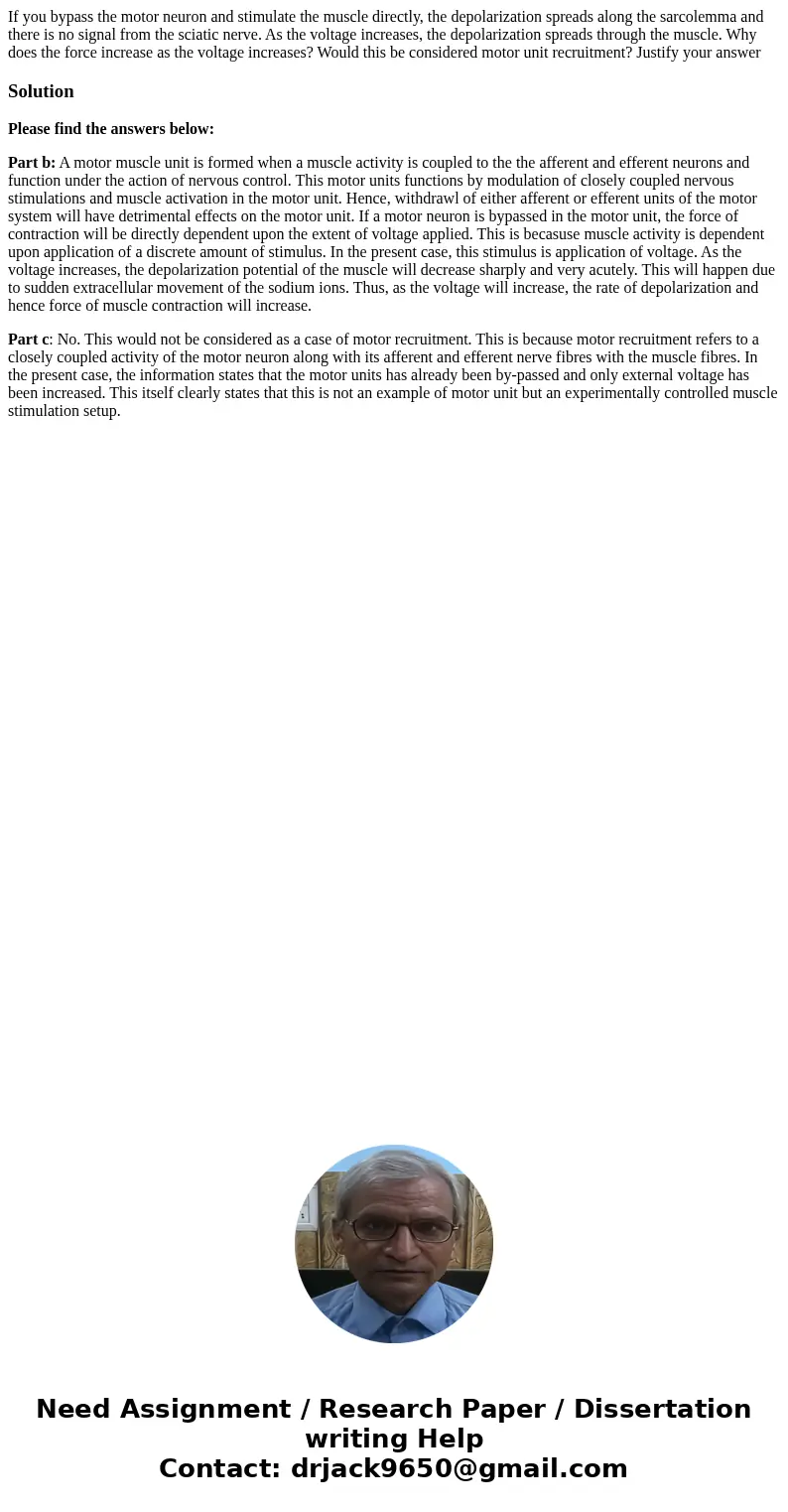If you bypass the motor neuron and stimulate the muscle dire
Solution
Please find the answers below:
Part b: A motor muscle unit is formed when a muscle activity is coupled to the the afferent and efferent neurons and function under the action of nervous control. This motor units functions by modulation of closely coupled nervous stimulations and muscle activation in the motor unit. Hence, withdrawl of either afferent or efferent units of the motor system will have detrimental effects on the motor unit. If a motor neuron is bypassed in the motor unit, the force of contraction will be directly dependent upon the extent of voltage applied. This is becasuse muscle activity is dependent upon application of a discrete amount of stimulus. In the present case, this stimulus is application of voltage. As the voltage increases, the depolarization potential of the muscle will decrease sharply and very acutely. This will happen due to sudden extracellular movement of the sodium ions. Thus, as the voltage will increase, the rate of depolarization and hence force of muscle contraction will increase.
Part c: No. This would not be considered as a case of motor recruitment. This is because motor recruitment refers to a closely coupled activity of the motor neuron along with its afferent and efferent nerve fibres with the muscle fibres. In the present case, the information states that the motor units has already been by-passed and only external voltage has been increased. This itself clearly states that this is not an example of motor unit but an experimentally controlled muscle stimulation setup.

 Homework Sourse
Homework Sourse